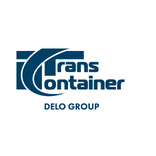Global container schedule reliability report 2021
The reliability of the schedule in 2021 dropped to 35.8%. This number not only represents the lowest level of schedule reliability recorded for 2021, but also represents a very sharp drop from pre-2020 levels.
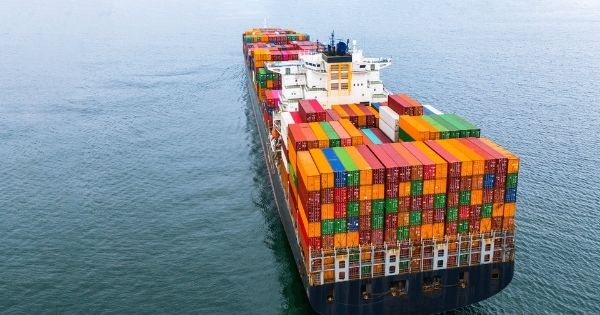
A container vessel
The schedule reliability dropped from 78.0% in 2019 to 63.9% in 2020 and then further declined to 35.8% in 2021. These numbers not only represent the lowest schedule reliability recorded in 2021 but also shows a very sharp drop from pre-2020 levels.
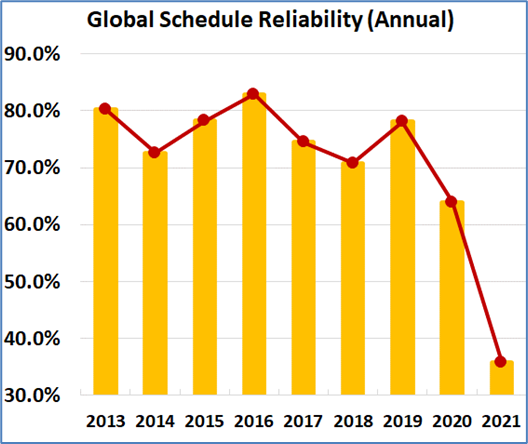
Reliability of global shipping schedule in 2021 (Source: Sea-Intelligence, 2021-FY GLP report)
The average delay for late vessel arrivals has been on an upwards trend since the lowest recorded delay of 3.19 days in 2016. In 2021, the figure nearly touched the 7‑day mark, reaching 6.86 days. The average delay for all vessel arrivals recorded a sharp increase in 2020, and an even sharper increase in 2021, with the 2021 figure crossing the 4‑day mark for the first time.
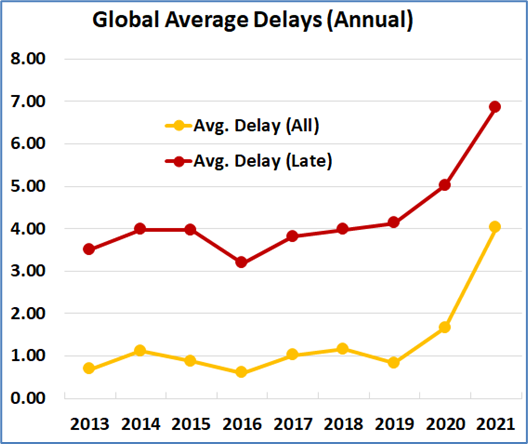
Average number of days of schedule delay (Source: Sea-Intelligence, 2021-FY GLP report)
Maersk is the most reliable carrier among the top 14 carriers in 2021, with schedule reliability of 46.4%, followed by Hamburg Süd (40.9%). There are four carriers with schedule reliability between 30%‑40%, and there are seven carriers with schedule reliability between 20%‑30%. Only Evergreen shipping line has a schedule reliability of less than 20%. None of the top 14 carriers recorded year-over-year improvements in schedule reliability.
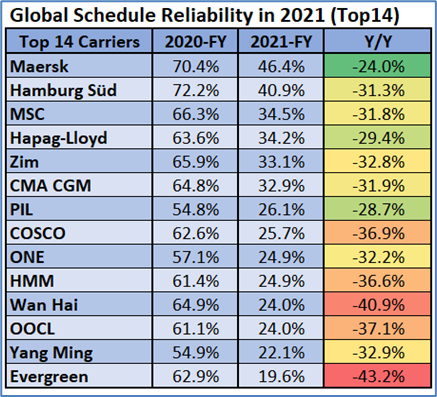
Reliability of schedule of Top 14 container shipping lines in the world (Source: Sea-Intelligence, 2021-FY GLP report)
Streamlines (98.8%), Geest Line (98.6%), and ICL (98.0%) are the most reliable shipping lines providing niche services in 2021, while ARRC (9.9%) is the least reliable. Only 11 carriers offering niche services recorded year-over-year improvements in schedule reliability.
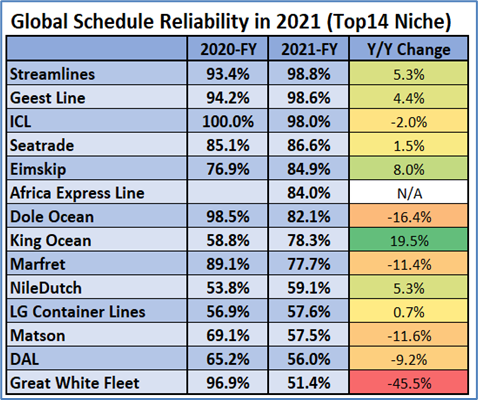
Độ tin cậy lịch trình của Top 14 hãng tàu container (thị trường ngách) trên thế giới (Nguồn: Sea-Intelligence, 2021-FY GLP report)
2M (33.6%) is the most trusted carrier alliance in 2021, followed by THE Alliance (15.5%) and Ocean Alliance (8.2%). All three carrier alliances recorded a significant decrease in schedule reliability compared to the previous year. Compared to the industry average, only 2M Alliance scored higher than the industry, 3.5 percentage points, while Ocean Alliance recorded a significant decrease of ‑15.3 percentage points. Up to 3 out of 4 quarters of 2021, 2M Alliance has higher reliability than the industry average.
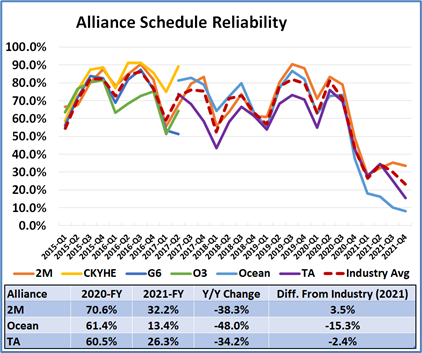
Schedule reliability of shipping line alliances (Source: Sea-Intelligence, 2021-FY GLP report)
All six major East/West routes recorded double-digit year-over-year declines in schedule reliability, Asia‑Europe and Asia-North America West Coast trade lanes recording year-over-year declines more than 40 percentage points. That said, apart from the Transatlantic Eastbound trade lane, none of the other trade lanes recorded a better reliability score in 2021 than the industry average, with both Transpacific trade lanes, and Asia-North Europe recording double-digit declines.
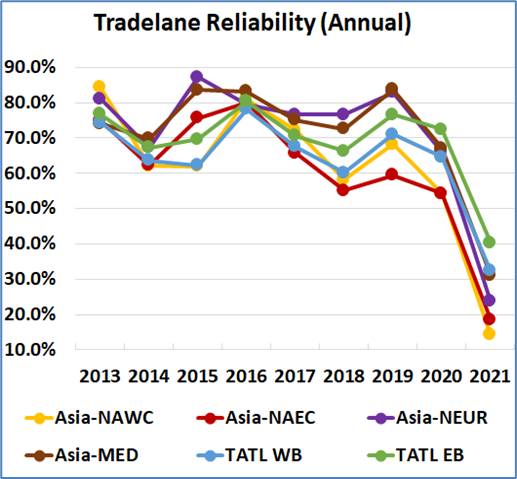
Schedule reliability of major transport routes (Source: Sea-Intelligence, 2021-FY GLP report)
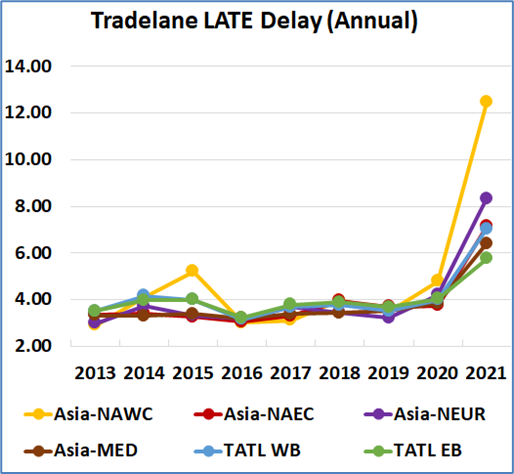
Number of days of delay on major shipping routes (Source: Sea-Intelligence, 2021-FY GLP report)
In terms of delays, all six major trade lanes follow the same general trend. In 2021, Asia-North America West Coast recorded the largest average increase in delays, surpassing the 12-day mark, while the Asia-North Europe service surpassed the 8-day delay mark.
Read more:
- Schedule reliability below 40% in 2021, Maersk stays on top
- No correlation found between schedule reliability and freight rates - Sea-Intelligence
- 2M alliance reschedules European services due to port congestion problem
- Reliability of container sailing schedules is at a record low, only 33.6%
Source: Phaata.com (According to Sea-Intelligence, 2021-FY GLP report))
Phaata - Vietnam's First International Logistics Marketplace
► Find Better Freight Rates & Logistics Services







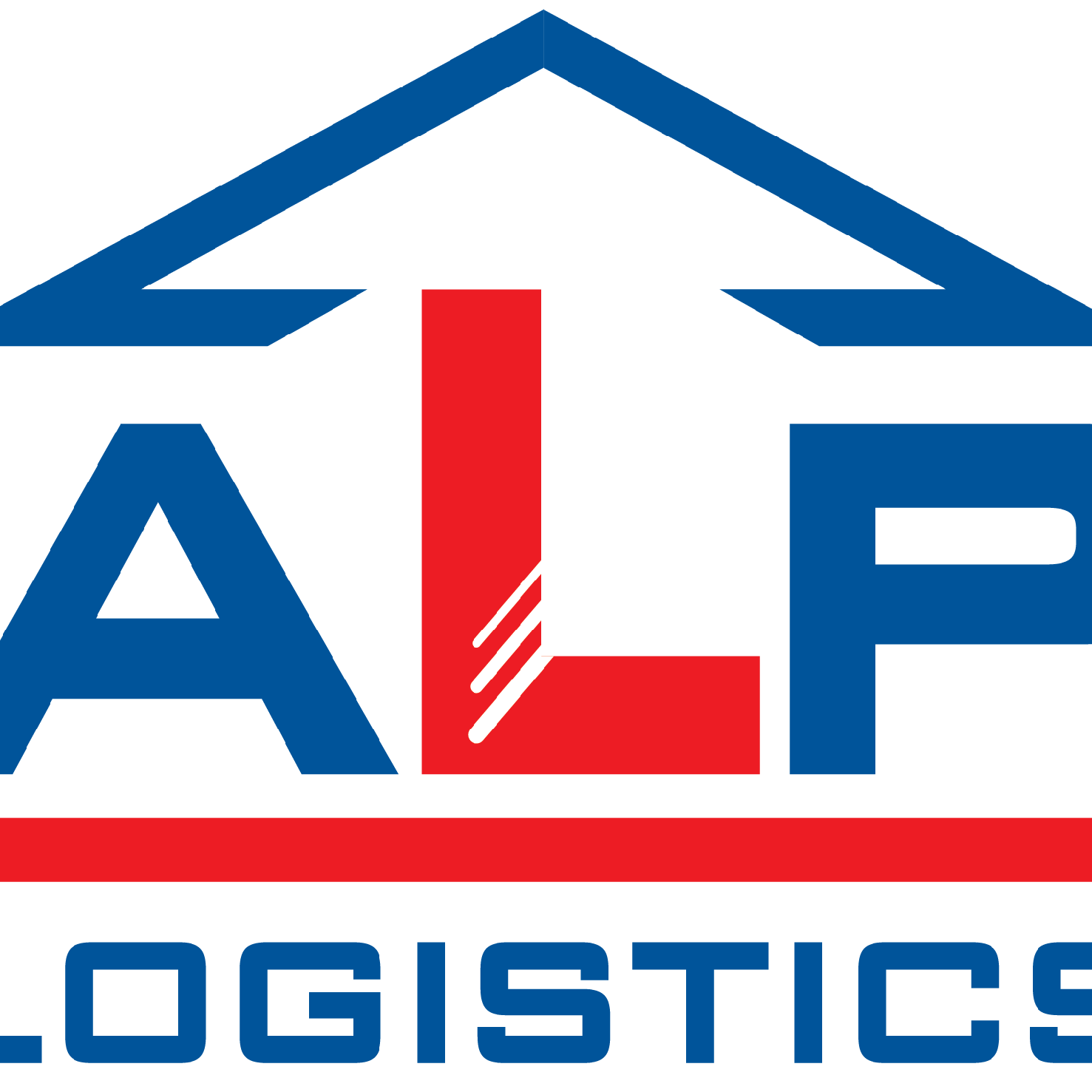



.png)

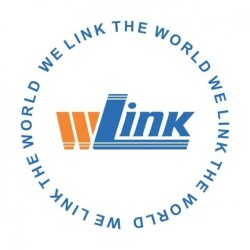






.jpg)
